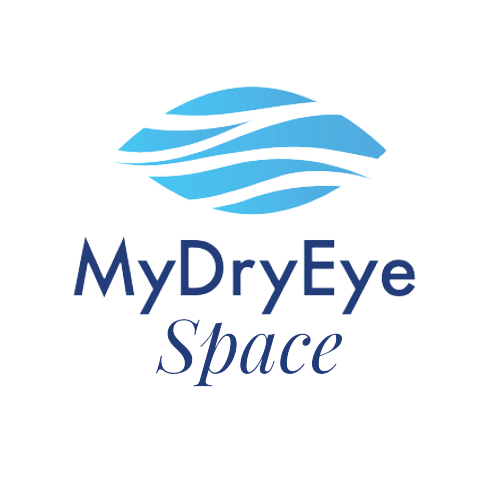This post Can't See at Night While Driving? Is Dry Eye the Cause first appeared on MyDryEye.ca
It was written by Dr. Diana Nguyen.
Please visit MyDryEye.ca to visit the original post.
If you often feel a burning, gritty, or stinging sensation in your eyes, you may be dealing with dry eye. This is a common condition that affects many Canadians every year, and feels like irritation or dryness in your eye.
With a wide range of causes and effects, it can make your day-to-day life much harder—and this is even more true if you’re doing a focused task like driving. Dry eye can cause many different vision problems that can make driving at night more difficult, including blurry vision, irritation, and watery eyes. Reduced visibility can be a major risk factor for vehicle accidents.
It’s important to visit your optometrist for regular comprehensive eye exams, especially if you’re dealing with dry eyes and blurriness. By determining the cause of your dry eye, you can take precautions to keep your eyes comfortable and stay safer behind the wheel.
What Is Dry Eye?
Dry eye, also known as dry eye syndrome, is a condition that causes a burning, dry, or gritty sensation in your eyes. This is caused by a disruption to your tear film, which can be caused by a variety of factors.
Tear Development
Your eye naturally produces tears and disperses them across its surface. These tears are made up of 3 primary components:
- The water layer, which provides moisture, lubrication, and oxygen
- The oil layer, which helps prevent the tear layer from evaporating too early
- The mucus layer, which helps spread the tears evenly across the surface of the eye
If there is a problem with any of these 3 layers, it can disrupt your tear production. This can lead to your eye either producing too few tears, or poor-quality tears.
What Other Factors Can Cause Dry Eye?
Many external factors can affect your tear film and its ability to keep your eyes lubricated. Other factors, like medication, sleep issues, medical conditions, or aging can contribute heavily.
One important potential cause of dry eye is simply the environment around you. If you live, sleep, or work in an area that’s especially dry, dusty, or hot, this can lead to your eyes having to work harder to produce the tears needed to accommodate your needs.
Certain activities can make dry eye syndrome worse, such as:
- Driving with a window down
- Prolonged screen time
- Prolonged reading
- Wearing contact lenses
Is Dry Eye Worse at Night?
Many people report that their dry eyes are worse at night. This can be caused by many different things.
One of the main reasons for dry eyes being worse at night is simply that we may blink more during the day. This means we’re constantly getting a new film of tears over our eyes. But at night, especially if reading, driving, or watching a screen, we often blink less. This can lead to a significantly increased feeling of dryness.
People who wear contact lenses may also find their dry eye syndrome is worse at night. Exposure to screens or the dry air in a car can lead to contact lenses irritating your eye.

How Does Dry Eye Syndrome Affect Driving?
When driving, dry eye can be made much worse. With constant lighting changes from streetlights, tunnels, or the environment around you mixed with oncoming headlights, your eyes have to work harder to keep focused. This makes it even more important to take action to address your dry eyes to avoid discomfort when behind the wheel.
Since dry eye syndrome can cause significant irritation or blurriness, it can lead to distractions while driving. Rubbing your eyes or dealing with temporary vision issues can make it difficult to focus on the road.
How to Manage Dry Eye Syndrome
If you’re dealing with dry eye syndrome in any way, it’s important to visit your optometrist so you can find the root cause of the problem. They can help determine the underlying cause of your symptoms and help you make a plan to treat the condition. In many cases, something as simple as preservative-free eye drops or reducing your screen time can lead to dry eye syndrome receding.
Try using recommended preservative-free eye drops and avoid rubbing your eyes where possible. Switching to glasses can help make sure your eyes don’t work any harder than they have to.
Take Control of Your Eye Health
There are many ways you can help keep your eyes healthy, but at the end of the day, the best way to deal with dry eyes is to speak with an optometrist. They can help you make a plan to treat the problem and can give you advice to make it safer when you have to drive at night. Find a doctor through us here at MyDryEye today and speak with a professional!

Back to School Screen Time: How to Protect Kids’ Eyes (And Keep Them Focused)
As the school bell rings and kids head back to classrooms and virtual desks alike, there's one fall challenge that's often overlooked: increased screen time. Here’s why screen time affects eye health, and how to support your child’s focus and comfort this school season.
Canada Post Strike 2025 Update #1 - May 26, 2025
As of Friday, May 23, 2025, the Canadian Union of Postal Workers (CUPW) has initiated legal strike action in the form of a nationwide overtime ban. This affects...
Important Shipping Update: Canada Post Strike (2025)
As of Friday, May 23, 2025, Canada Post workers have announced a nationwide strike following yet another unresolved agreement with the postal service. As always, at EyeDropShop, your satisfaction and access to your essential eye care products remain our top priorities...






















